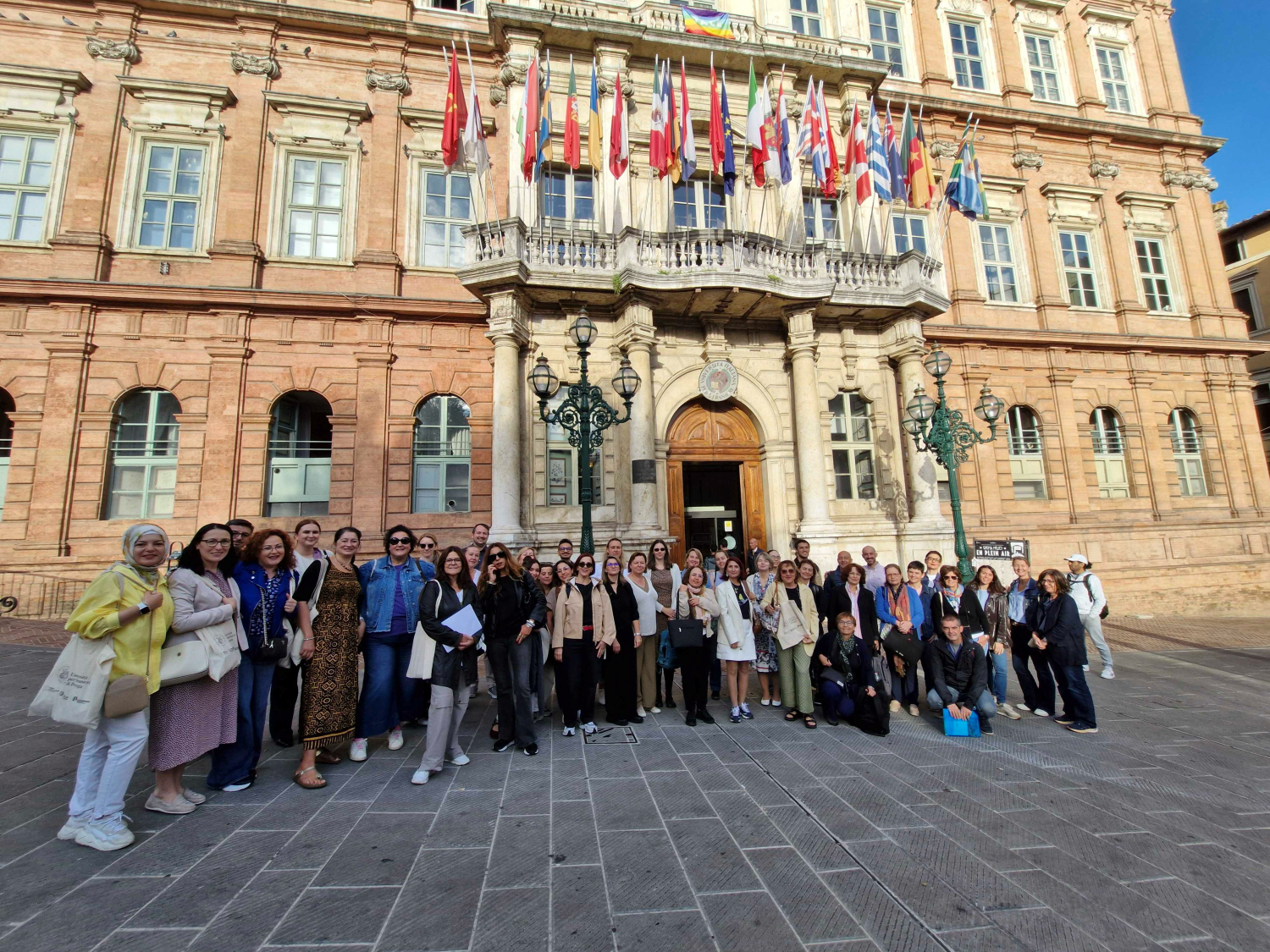

Back to currents
Training School: Understanding discourse methods with a focus on Cognitive Discourse Functions.
Silvia Rieder-Marschallinger
Mar 1, 2024

Organized by Working Group 3 of the COST Action CA21114, a four-part online training school was held between January 15th and February 12th, hosted by Prof Christiane Dalton-Puffer, Dr. Silvia Minardi, and Dr. Silvia Rieder-Marschallinger. The workshop's primary goal was to introduce participants to the concept of cognitive discourse functions (CDFs) and to delve into its applications as an analytical tool across various disciplines, while also discussing pedagogical implications.
In the first session, the facilitators of this training school provided the participants with the theoretical foundations and an insight into the different applications of the CDF construct. After getting to know the group and their “CDF-related” needs, Prof Christiane Dalton-Puffer introduced the CDF construct and its origin and exemplified how it has been used in previous empirical research and which role it played in the analysis of the data compiled through Task 1 of WG3, i.e., analyses of European curricula of various subjects. Dr. Silvia Rieder-Marschallinger and Dr. Silvia Minardi then illustrated how CDFs can be used in the field of history and science, respectively, drawing on their doctoral research and beyond. Finally, we started the process of discussing how the construct can be applied to the data collected through Task 2 of WG 3, i.e., texts embodying what teachers expect ‘good’ CLIL students can produce.
In Session 2, participants dived into the specifics of CDF-based analyses within the field of history. For this purpose, Dr. Silvia Rieder-Marschallinger outlined a suggestion for a history-specific CDF construct and illustrated its application using data from her PhD study and other previous research projects, i.e., learner productions, classroom data and pedagogical material. The participants then compared and discussed their analyses of sample texts collected through Task 2 of WG 3 (teachers’ expectations) in order to identify challenges as well as best practices. We then zoomed in on history-specific language features potentially relevant for such analyses, including nominalisation, hedging, expression of causality, linking, subject-specific vocabulary and backshifting. Finally, the participants were walked through CDF-based analyses of Task 2 data, which also entailed the discussion of tricky cases.
Session 3 was entirely dedicated to Science, with in-depth analysis of tasks for Biology and Mathematics. At the beginning of the session some time was spent revising the analysis the participants had carried out during session 1. It became particularly relevant for the kinds of feedback which had been given to insist on CDF “evaluation”, which does exist in Science texts and can be made visible through the use of certain linguistic choices. This led the group to discuss and explore some linguistic elements which are typical of scientific English. These included, among others, logical metaphors, nominalisation, abstraction, density and grammatical intricacy, multiple representations. An aspect which was emphasized is the different approach we should have when examining CDFs in materials produced by teachers or in textbooks, in students’ performances or in classroom discourse: what seems relevant in one situation may not be so evident in others.
Finally, in session 4, our main aim was to create a solid basis for designing flexible and useful CDF-based analysis tools. For this purpose, participants put their new insights to use, which involved revisiting previous analyses, comparing findings, as well as discussing difficult aspects and disagreements in our coding, while also exploring differences between the disciplines. These discussions and the creation of CDF-based coding tools and coding manuals will be continued in Elbasan, when WG3 will meet in person and online.
Testimonials in the session:
Ainara & Co: Thank you for such an interesting session!
Emine (science educator): Thank you so much for these informative sessions. All three of them - it has helped me a lot to look at students’ explanations from the linguistic side.
Testimonials from the feedback questionnaire:
● nice to have hands-on experience applying the tool!
● Very informative throughout and very useful in detecting CDFs in writing or curriculum context
● Very educated lecturers provided very interesting tools.
● The training sessions provided very useful information about how to see and analyze students' explanations using tools of linguistics.
● The presenters did their best to prepare the sessions, to guide the participants, and to answer questions.
● Thank you!
● Thank you for getting us together.
● We really had insightful discussions during the sessions, we should more times for such discussions to bring science and linguistics close together.
● I think discussions in breakout rooms were very useful. And they opened our eyes to the CDEs and different views because people came from different fields. The trainers were very skilled at using Zoom. :-)
● Thank you for organizing the course. Due to teaching responsibilities, I missed some parts, but I'm grateful for the materials provided.
● Thanks for training.
● While I am very familiar with the cognitive levels of learning, CDF was totally new to me. It was useful to learn how these two important components can be combined to achieve/measure learning objectives
Discover Related Posts
Find out about our activities and grant opportunities!

News
CLILNetLE 2nd Training School in Perugia
By
Talip Gülle
Date
Aug 8, 2023
Read More

Grants
Final collection of applications for conference grants for the current grant period
By
CLILNetLE
Date
Aug 8, 2023
Read More
Grants
CLIL NetLE's grant call for STSMs and VMs is now open
By
CLIL NetLe Communicationa Team
Date
Aug 8, 2023
Read More




